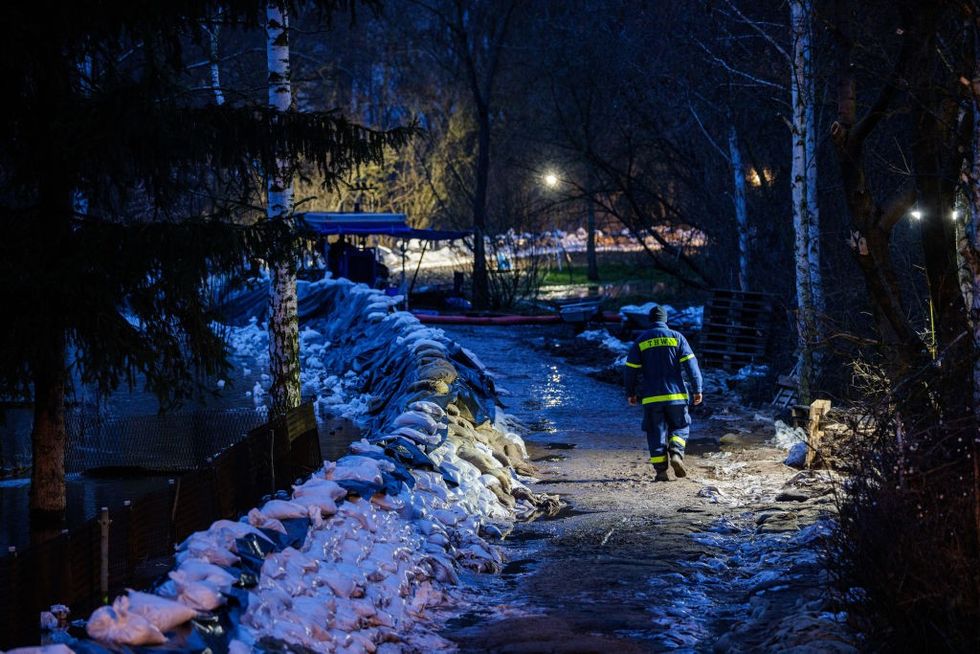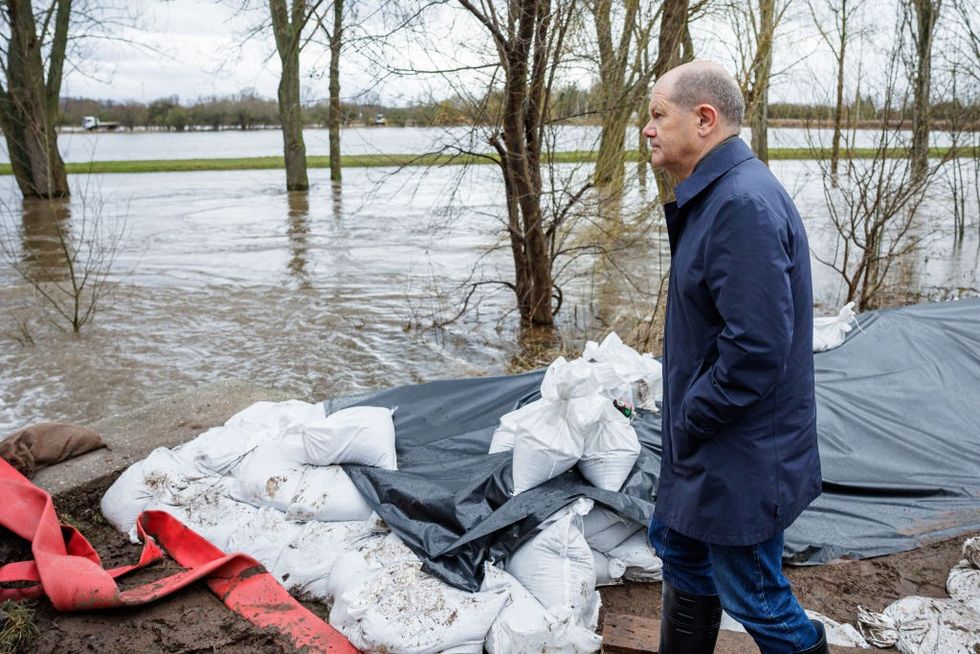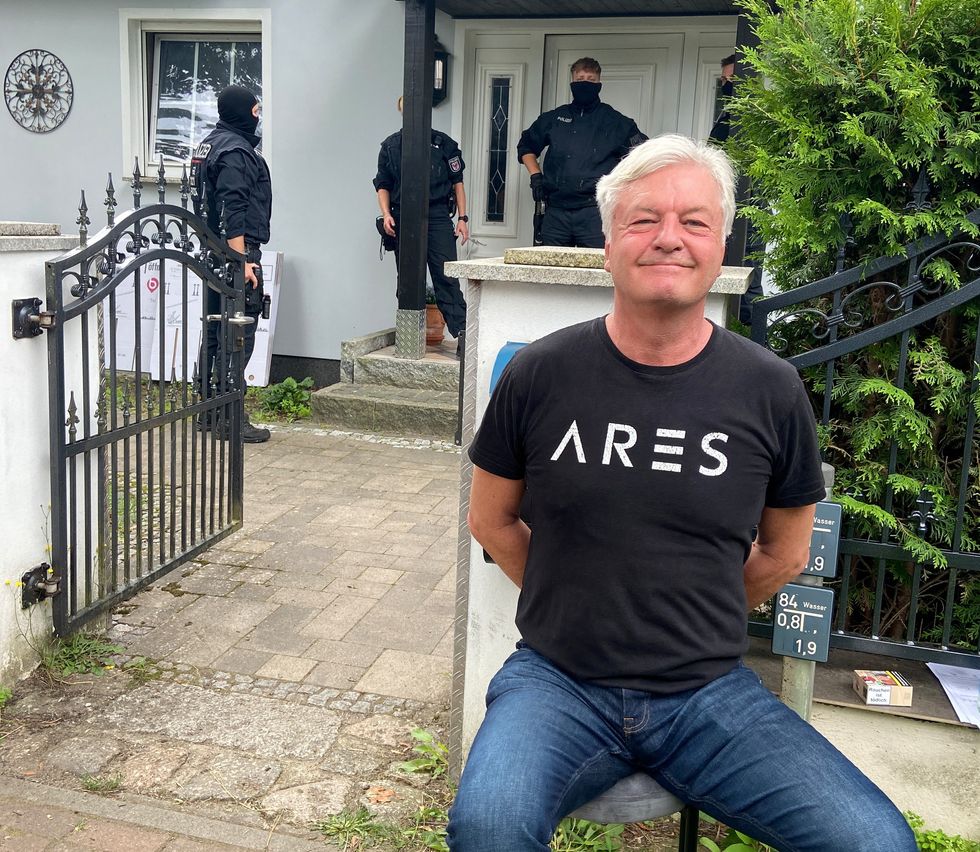Those who refused to help have had their benefits slashed
Getty
Asylum benefits have been cut in half to €232 a month for the next three months
Don't Miss
Most Read
Trending on GB News
Migrants in Germany who did not turn up to help clean up after severe flooding have had their benefits dropped.
Local authorities in the state of Saxony-Anhalt wrote to a group of 64 asylum seekers, demanding they help clear debris and erect dykes for a fee of 80 cents an hour.
However, only 39 showed up, while the rest failed to attend either because they had a compulsory language course or simply did not want to do it.
Now, the district council has ruled that the 15 who had no excuse not to take part will have their asylum benefits cut in half to €232 a month for three months.

Those who refused to help have had their benefits slashed
Getty
The decision has been heavily criticised by migrant networks and charities, who called the judge's decision "exploitative."
Deputy director at migrant network Lamsa Mika Kaiyama said: "An obligation to take up work that is paid an hourly wage of 80 cents is not necessarily suitable for promoting sustainable integration and access to the labour market.”
Mamad Mohamad from Lamsa added: "Refugees are not willing, cheap workers who can be ordered to work.”
Defending the court’s decision, district councillor Andre Schroeder, from the opposition Christian Democrat party, said: "Anyone who seeks protection from us from other countries can be obliged to do work that serves the common good," he said, adding that those who were asked were from Syria, Afghanistan, Niger, Mali and Albania.
LATEST DEVELOPMENTS

Chancellor Scholz visiting the flooded scenes in Germany
Getty
It comes after Germany banned the hard right-wing Compact magazine earlier this week, accusing it of being a "mouthpiece of the right-wing extremist scene" and inciting hatred of Jews and foreigners.
Stepping up the government's fight against what it says is a surge in far-right extremism in Germany, the interior ministry said Compact had been working against the constitutional order and ordered property searches in four states.
Compact magazine, widely seen as a mouthpiece of the right-wing Alternative for Germany (AfD) party's radical wing, has a circulation of 40,000 and a wide-reaching social media presence.
The ban also applies to Compact's subsidiary, Conspect Film, and prohibits any continuation of previous activities.

Compact magazine's editor-in-chief Juergen Elsaesser
Reuters
Interior Minister Nancy Faeser said: "This magazine incites hatred against Jews, people with a history of migration and our parliamentary democracy in an unspeakable manner."
Compact magazine's editor-in-chief, Juergen Elsaesser, said the ban was "dictatorial" and represented the worst attack on German press freedom in decades.
He said: "You are treating us like a mafia, like a terrorist group. But we are a legal press organ with a clean criminal record.
"This makes it clear that the only aim is to destroy the opposition and us as the strongest media. We are already in contact with lawyers."








